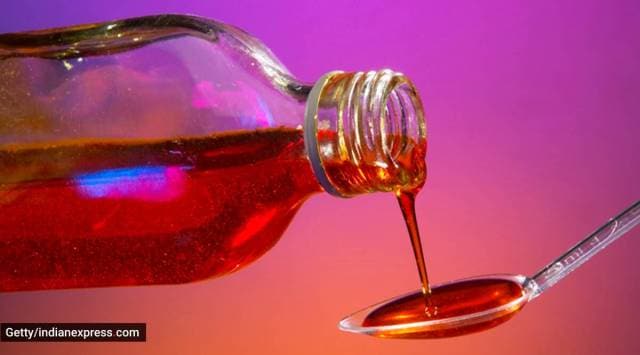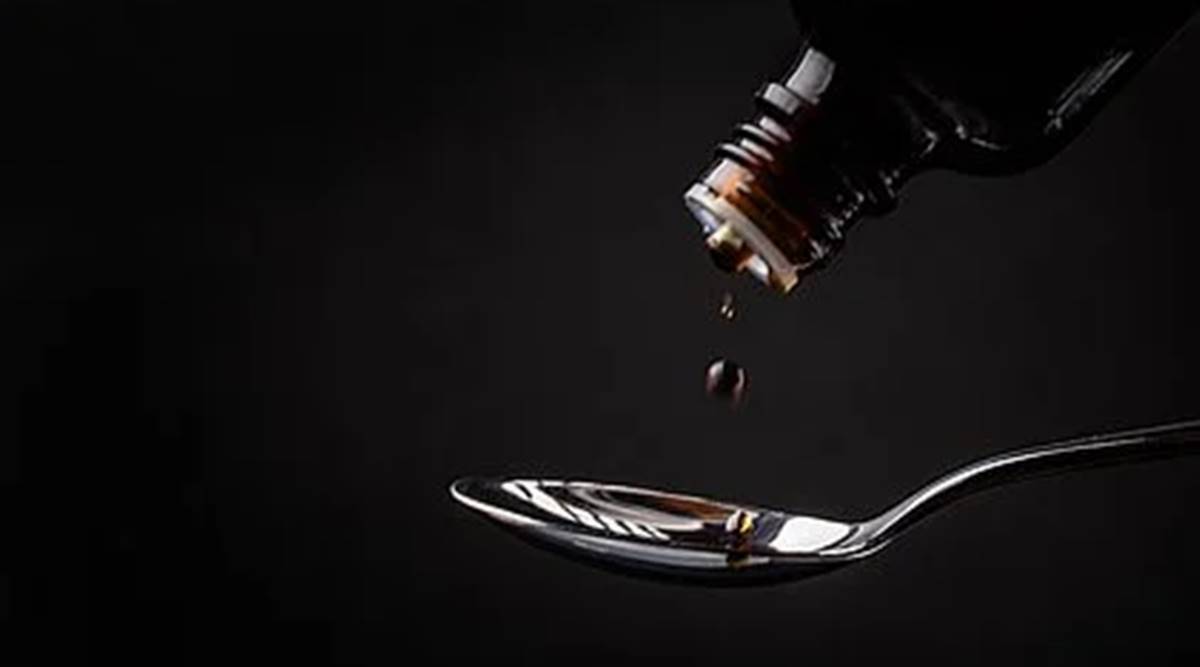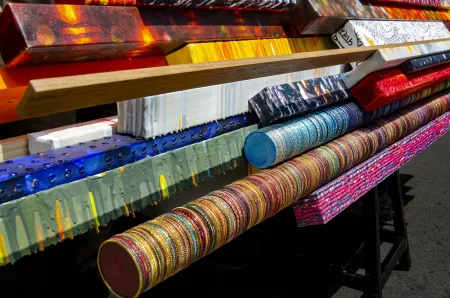- India
- International
Can cough syrups cause restlessness, low sugar level, excessive sleepiness in children?
According to Dr Ranjeet Ghuliani, it is important to note that coughing is good as the child is throwing away the excessive secretion which is produced in the body during an infection
 Are cough syrups safe for children? (Source: Getty Images/Thinkstock)
Are cough syrups safe for children? (Source: Getty Images/Thinkstock)The World Health Organisation on Wednesday issued an alert over four fever, cold and cough syrups made by an Indian company following the death of 66 children in Gambia. “Laboratory analysis of samples of each of the four products confirms that they contain unacceptable amounts of diethylene glycol and ethylene glycol as contaminants. To date, these four products have been identified in Gambia, but may have been distributed, through informal markets, to other countries or regions,” the WHO said.
As per sources, the samples tested by WHO were found to contain diethylene glycol or ethylene glycol which can cause serious side effects including abdominal pain, vomiting, diarrhoea, inability to pass urine, alternate mental state and acute kidney injury. “The substandard products referenced in this alert are unsafe and their use, especially in children, may result in serious injury or death.”
Buy Now | Our best subscription plan now has a special price
As such, are cough syrups, in general, safe for children? We reached out to experts to delve deeper.
According to Dr Meena Jayaram, Paediatrician, Aakash Healthcare, “Cough syrups, especially over-the-counter (OTC) ones, should not be given to children, especially those below two years of age. This is because they can cause serious side effects and we have seen incidences when children had to be hospitalised owing to serious complications due to cough syrups. Thus, OTC cough syrups should be completely avoided.”

Agreeing, Dr Ranjeet Ghuliani, Paediatrician, Sharda Hospital, explained that most cough syrups have three to four different chemicals. “Some of them are anti-histamines and antitussive – which suppress the cough in the central part of the brain. Most of these drugs are not recommended to children below two years of age. In fact, some of the most common cough syrups that you see come with a warning label stating they are not meant for younger children (below 2 years).”
These are not recommended, according to Dr Pradeep Aggarwal, Unit Head and Senior Consultant, Pediatrician, Sri Balaji Action Medical Institute, because most cough syrups contain more than one component and “they all may not be required for the child”. “At the most, they can be given only anti-allergic medicines. At the same time, it is best to treat the cause of the cough. Notably, there is no fixed cough syrup for every kind of cough,” he told indianexpress.com.
Possible side effects
According to child health specialists, cough syrups should be avoided as they may have mild to severe side effects on children. “There could be mild side effects such as excessive sleepiness, restlessness, low sugar levels, electrolyte imbalance, etc. But, there can also be serious side effects when cough syrups can lead to seizures, renal injury, etc,” Dr Jayaram said.
 Cough syrups can have mild to severe health consequences on children (File)
Cough syrups can have mild to severe health consequences on children (File)
“They can cause sedation in the child, suppression of the brain and, sometimes, suppression of the breathing patterns. A young infant, who is not able to communicate too well, can bear serious consequences,” Dr Ghuliani added.
Are they safe for children above two years of age?
While cough syrups should be completely avoided for children below two years, they need to be given judiciously to older children, as well, experts said. “Above two years, they are relatively safer if given in correct doses. It also depends on what kind of formulation it is. If it has a plain and simple anti-histamine and a drug called Dextromethorphan, these drugs don’t have serious side effects in children above two years,” Dr Ghuliani said.
These may also have possible side effects on adults, they added. Dr Jayaram explained, “OTC cough syrups are found to be addictive due to the presence of anti-histamines. Some of them also have opioid components that can cause dizziness, inhibition or sleepiness. If cough and cold are not troubling them too much, even adults shouldn’t consume them.”
What should be done?
As we know, colds and coughs are common in children. So, what can be the safer replacement for commonly-used cough syrups? “Home remedies might help to some extent, like warm water sips and other warm fluids like tea, ginger honey syrup. Steam inhalation, oral saline water sips etc are some other methods,” Dr Aggarwal said.
Dr Jayaram warned against using any medicine without your child’s paediatrician’s prescription. “Most of the viral infections can persist for a long time. But, if they are not accompanied by fever or serious cough, they need not be treated aggressively. A nasal spray to keep the nose clean and avoid stuffiness can be used. Symptomatically, we give paracetamol to relieve the symptoms because of cold and cough. Sometimes, a humidifier or a nebuliser should help most of the prevalent colds and coughs. In selected cases, we do require stronger medicines to get rid of coughs,” she said.
According to Dr Ghuliani, it is important to note that coughing is good as the child is throwing away the excessive secretion which is produced in the body during an infection. “You must remember that it is a good protective reflex. So it is not necessary to suppress it. What we generally suggest is when a child is sleeping in a closed room, you get a proper steamer. Steam inhalation really helps children out. We also ask parents to manage nasal congestion by inserting saline nasal drops,” he told indianexpress.com.
📣 For more lifestyle news, follow us on Instagram | Twitter | Facebook and don’t miss out on the latest updates!
Apr 19: Latest News
- 01
- 02
- 03
- 04
- 05


































